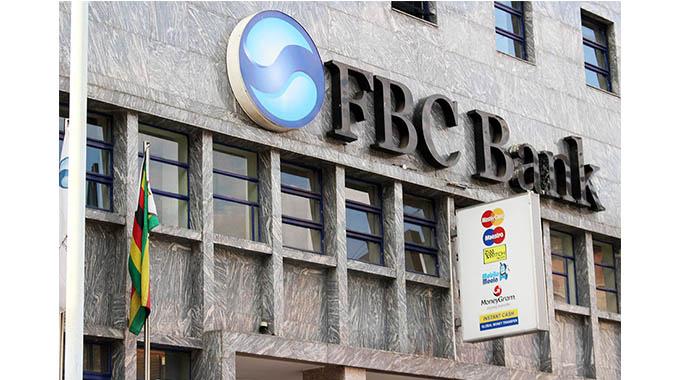Sports / Local
FBC urges clear Zimbabwe de-dollarisation framework
15 Aug 2025 at 07:55hrs |
27 Views

FBC Holdings Limited has called on the Reserve Bank of Zimbabwe (RBZ) to establish a clear and credible framework for de-dollarisation to ease pressure on the country's foreign currency reserves.
The appeal comes amid government plans to phase out the multi-currency regime and adopt the Zimbabwe Gold (ZiG) currency as the sole legal tender. Economic analysts, however, caution that without sufficient foreign currency to support trade and a robust plan to build confidence in the local unit, the economy risks a recession similar to past abrupt currency transitions.
"The de-dollarisation road map should be supported by a robust import substitution framework to reduce pressure on foreign currency reserves," FBC said in its review of the 2025 Mid-Term Monetary Policy Statement.
FBC recommended channeling external inflows into strengthening domestic currency use, enhancing export competitiveness in non-traditional sectors, and establishing credible local currency pricing mechanisms across both public and private sectors.
The firm noted that structural reforms and economic diversification were essential to reducing reliance on the US dollar, although current trends provide a supportive platform.
"The increased use of ZiG in both digital and cash transactions, rising from 26% in April 2024 to over 40% in June 2025, is a positive development," FBC said. "This trend should be reinforced by confidence-building reforms, macroeconomic stability, and policy consistency to shift business and consumer preferences towards the local currency over the medium to long term."
Foreign currency inflows rose by 23,1% to US$7,3 billion between January and June, helping stabilise the ZiG/US dollar exchange rate and allowing reserves to accumulate to over US$730 million, up from US$285 million in April 2024.
Financial services firm IH Securities welcomed the RBZ's tight monetary policy, citing the central bank's commitment to maintaining low inflation and reviewing policy rates in line with economic growth. The firm also praised the consultation of industry stakeholders as a way to refine policy decisions.
However, IH Securities highlighted ongoing challenges, including weak forex reserves and exporters reportedly not receiving the local currency portion of their earnings. The firm warned that these issues must be addressed to build trust in the de-dollarisation process.
Experts caution that enforcing a rapid shift from the US dollar without a trusted, stable local currency and sufficient forex buffers could trigger inflation, supply shortages, and a slowdown in economic activity.
The appeal comes amid government plans to phase out the multi-currency regime and adopt the Zimbabwe Gold (ZiG) currency as the sole legal tender. Economic analysts, however, caution that without sufficient foreign currency to support trade and a robust plan to build confidence in the local unit, the economy risks a recession similar to past abrupt currency transitions.
"The de-dollarisation road map should be supported by a robust import substitution framework to reduce pressure on foreign currency reserves," FBC said in its review of the 2025 Mid-Term Monetary Policy Statement.
FBC recommended channeling external inflows into strengthening domestic currency use, enhancing export competitiveness in non-traditional sectors, and establishing credible local currency pricing mechanisms across both public and private sectors.
The firm noted that structural reforms and economic diversification were essential to reducing reliance on the US dollar, although current trends provide a supportive platform.
"The increased use of ZiG in both digital and cash transactions, rising from 26% in April 2024 to over 40% in June 2025, is a positive development," FBC said. "This trend should be reinforced by confidence-building reforms, macroeconomic stability, and policy consistency to shift business and consumer preferences towards the local currency over the medium to long term."
Foreign currency inflows rose by 23,1% to US$7,3 billion between January and June, helping stabilise the ZiG/US dollar exchange rate and allowing reserves to accumulate to over US$730 million, up from US$285 million in April 2024.
Financial services firm IH Securities welcomed the RBZ's tight monetary policy, citing the central bank's commitment to maintaining low inflation and reviewing policy rates in line with economic growth. The firm also praised the consultation of industry stakeholders as a way to refine policy decisions.
However, IH Securities highlighted ongoing challenges, including weak forex reserves and exporters reportedly not receiving the local currency portion of their earnings. The firm warned that these issues must be addressed to build trust in the de-dollarisation process.
Experts caution that enforcing a rapid shift from the US dollar without a trusted, stable local currency and sufficient forex buffers could trigger inflation, supply shortages, and a slowdown in economic activity.
Source - Newsday
Join the discussion
Loading comments…





























